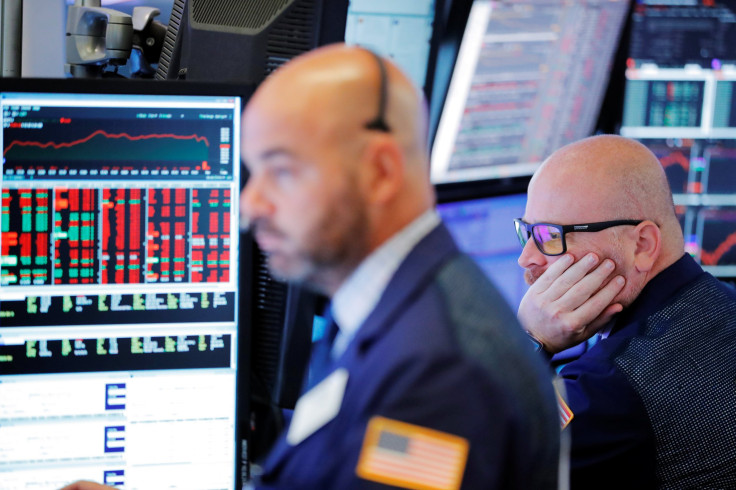Wednesday's Stock Market Close: US Equities Rose On Hopes For China Trade Deal, Despite Some Weak Economic Data

U.S. equity indexes closed higher on Wednesday on a report the U.S. and China are making progress on phase one of a trade deal, overcoming some tepid economic numbers.
The Dow Jones Industrial Average gained 148.12 points to 27,650.93 while the S&P 500 rose 19.63 points to 3,112.83 and the Nasdaq Composite Index advanced 46.03 points to 8,566.67.
Volume on the New York Stock Exchange totaled 2.86 billion shares with 2,116 issues advancing, 70 setting new highs, and 853 declining, with 14 setting new lows.
Active movers were led by PG&E (PCG), Viacom (VIAB) and NIO (NIO)
President Donald Trump said on Wednesday trade talks with China were "going very well" one day after he said the deal might be pushed back until after next year’s election.
Bloomberg reported Beijing and Washington were working on a phase one trade deal that would be finished before another round of tariffs against Chinese goods are scheduled for Dec. 15. One of the matters discussed in trade talks was which tariffs would be rolled back.
Sources informed Bloomberg that neither Trump signing a bill in support of Hong Kong protesters nor legislation designed to sanction China over human rights violations against Uighurs in Xinjiang would scuttle the deal.
“It still baffles me that investors hang on every Trump statement and tweet,” said Craig Erlam, an analyst with OANDA Europe. “His trade deal optimism changes on a near-daily basis and yet investors are very sensitive to it. It is probably a reflection of the relative lack of other talking points.”
Private employers added 67,000 jobs in November, the lowest level since May, the ADP National Employment Report said. Economists predicted a gain of 140,000 jobs.
The Institute for Supply Management said its nonmanufacturing activity index fell to 53.9 in November from 54.7 in October. Economists had expected the index to dip to a reading of 54.5 in November.
U.S. Federal Reserve Vice Chair Randal Quarles testified before Congress on Wednesday that how the central bank supervises large banks might have helped cause some of recent turmoil in overnight financial markets.
Quarles also said the Fed is reviewing supervisory practices, including internal liquidity stress tests, that might have discouraged banks from investing in repo markets.
“The banking system is substantially better prepared to manage unexpected shocks today than it was before the financial crisis. Now, when the waters are relatively calm, is the right time to step back and examine the efficiency and effectiveness of our protection against future storms,” he said.
The Bank of Canada kept its the overnight rate unchanged at 1.75%, citing its projection for global economic growth appears to be intact.
“There is nascent evidence that the global economy is stabilizing, with growth still expected to edge higher over the next couple of years,” the bank said.
Overnight in Asia, markets all finished lower. The Hang Seng fell 1.25% while Japan’s Nikkei-225 dropped 1.05% and China’s Shanghai Composite slipped 0.21%
European markets closed higher with the FTSE 100 up 0.42% while Germany's DAX rose 1.16% and France's CAC 40 jumped 1.27%.
Crude oil futures gained 4.05% to $58.37 per barrel and Brent crude edged up 0.06% at $63.04. Gold futures slipped 0.26%.
The euro fell 0.03% to $1.1079 while the pound sterling rose 0.83% at $1.3104.
The yield on the 10-year Treasury note rose 4.21% to 1.781% while yield on the 30-year note gained 3.19% to 2.29%.
© Copyright IBTimes 2024. All rights reserved.




















